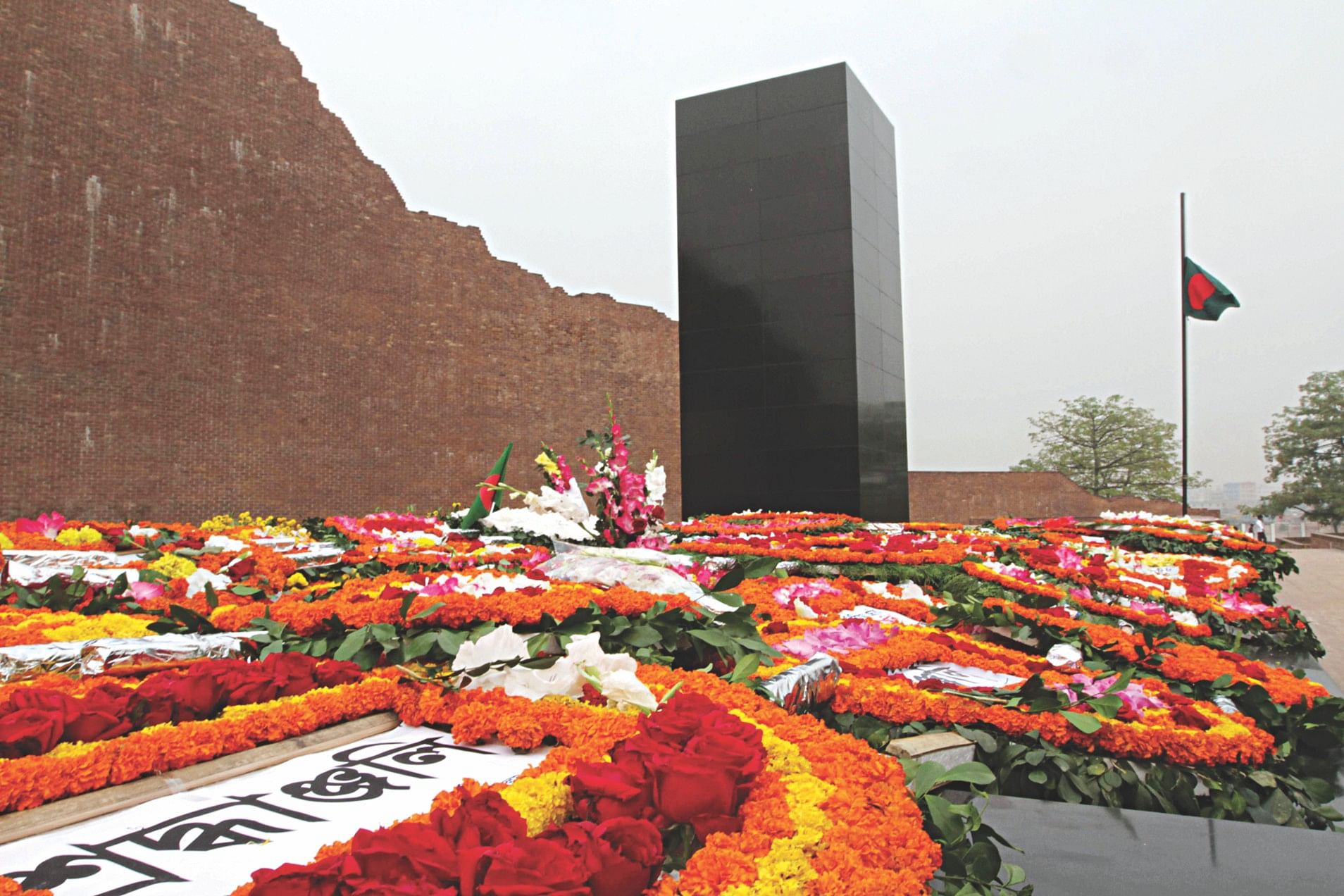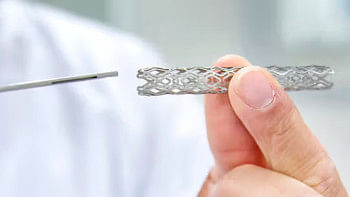Long walk to justice

Every year the nation observes the Martyred Intellectual Day with deep pain and heartfelt cry for justice. For many long decades it was a call in the wilderness, but the people, the members of the victims family and generation-next of Bangladesh never deterred from their long and arduous struggle for justice and in 2013 the nation is going to observe the day in a different context of justice delivered. Cursed is the nation that has such a brutal day to observe as the day of martyred intellectuals and blessed is the nation that could end the long impunity to establish justice through due process of law. When on 3 November 2013, International Crimes Tribunal-2 delivered verdict on ICT-BD Case No. 01 of 2013 of the Chief Prosecutor Vs. Ashrafuzzaman Khan and Chowdhury Mueen Uddin it became a landmark achievement in nation’s history. The Tribunal announced the summary judgment in the packed court-house in the morning and the full text of the verdict was made available in the Tribunal website from the same afternoon, which in itself is an exceptional practice in relation to the national court practices where it usually take months to release the full verdict. Anyone can download the verdict from ICT-BD website www.ict-bd.org and one should take full advantage of such opportunity in order to get the feel of beauty and strength of law which has been reflected in the pages of the verdict.
The Tribunal has laid bare the way Al-Badr, secret killing squad of the Pakistani Army, formed by the leading cadres of the student wing of Jamat-E-Islami, operated during the December days and executed the plan of extermination of the intellectuals. The Tribunal observed, “Al-Badar was formed with the workers of Islami Chatra Sangha (ICS), the student wing of Jamat-E-Islami (JEI) and it provided support to the occupation armed forces.” (Section 94). It further noted that the “existence of organized plan through-out and designed by the fascists JEI for implementation of which a ‘killing squad’ comprising of Al-Badar men was formed. Intention was to wipe out the Bengali intellectuals.”
The Tribunal in a legal way has gone through the submissions of the prosecutors and arguments of the defence, but even in its judicial adjudication of the charges the Tribunal cannot deny the tragic human aspect of the events which overwhelms oneself. Initially the Investigation Agency submitted two separate reports on two accused but based on the nature of criminality the Chief Prosecutor preferred to submit a single ‘formal charge’ with a view to prosecute them jointly which the Tribunal permitted under rules 36 of the Rules of Procedure 2012 of ICT-2. On 27 May 2013 the Tribunal ordered for the trial of the accused person in absentia and thus began the due process of law to achieve justice for the horrendous killing of intellectuals in 1971. It is to be noted that the Tribunal rightfully termed the killing of intellectuals as ‘Extermination’ that is killing of individuals of a particular group on a large/massive scale. In all the eleven charges involving the killing of 18 intellectuals as part of a group and target of wide-spread attack the two accused were found guilty of ‘extermination’ as ‘crimes against humanity’ and thereby convicted and condemned to the single sentence of death.
The Tribunal noted, “The fierceness of the event of the ‘intellectual killing’ was extremely detrimental to basic humanness. It deserves to be evaluated as ‘crimes of serious gravity’ intending to demean the human civilization. Designed plan, pattern of such selective but large scale killing of intellectuals inescapably aggravate the magnitude of the criminal acts and liability of the accused persons as well. Humankind experienced enormous atrocious attack directing [against] civilian population in many parts of the world. But it has never crossed through experiencing the heart-rendering event of massive killing targeting a ‘group’ belonging to intellectual community known as the ‘conscience’ of the nation. The case in hand concerns such type of unheard of extermination committed in execution of designed murderous scheme. It not only increases the magnitude of the crimes but it has imprinted untold trauma to the nation. Letters of law cannot remain non-reactive to the enormous colossal and unspeakable pains being carried for decades together by the relatives of martyred intellectuals and the nation too.”
One can find in these words of ICT-BD the resonance of Chief Prosecutor of the Nuremberg Tribunal Justice Robert Jackson’s opening statement. He said “The wrongs which we seek to condemn and punish have been so calculated, so malignant and so devastating, that civilization cannot tolerate their being ignored, because it cannot survive their being repeated.”
Humanity shivers when it stands face to face with the brutalities of the acts of extermination carried out by the Al-Badar. Adjudicating Charge No. 5, the abduction and killing of journalist and poet Selina Parveen the Tribunal quoted from the report of the International Commission of Jurists made in 1972. It stated, “The only (lone) survivor, who managed to loosen the rope with which he was tied and escaped, had described how three prisoners were tortured before being taken out to be shot. The victims included women, one of whom was an editor who was found with two bayonet wounds, one through the eye and one in the stomach, and two bullet wound.”
Fortunately, that lone survivor and witness to the Al-Badar atrocities is still alive. Delwar Hossain now an elderly person has testified in the Tribunal providing vivid account of the last hours of Selina Parveen, a talented and spirited young woman who was struggling for her existence in Dhaka, a single girl with a seven year old boy Sumon. The Tribunal, analysed the testimonies and documentary evidences and observed, “Selina Parveen begged for her life, appealed to spare her as she had a kid and there was none to take care of him (P.W.3) excepting her. But the brutal killers did not spare her. She was instantly killed by charging bayonet as narrated by P.W. 22. What an impious butchery! What a sacrilegious butchery! What a shame for human civilization.”
ICT-BD judgement on the killing or extermination of the intellectual is a legal as well a human document. In their attempt to “fulfil humanity’s aspirations to justice”, one can listen to the human voice mingled with the legal notes. The Tribunal observed that most of the mothers of the victims’ family could not come to testify, many of them died in their long wait for justice, many are too old and traumatized, like Lily Choudhury, 84, wife of Professor Munier Chowdhury. In most cases the sons and daughters came to testify and the Tribunal made a highly interesting observation which one may argue went beyond legal adjudication but fall within human jurisdiction. The Tribunal noted, “It would not be out of place to pen the observation that the bereaved family of martyred intellectuals started a new battle for survival, even [when] the war of liberation ended. Facing immeasurable hurdles the traumatized wives of martyred remain on noble track in nourishing and bringing up their kids who lost their fathers, despite untold pains and loss sustained. Four decades after the horrific tragedy, tangibly the children of martyred are now doctors, professors, journalists, and highly educated experts working in international and multinational organizations. This achievement surely might have laid enormous peace to the departed souls of their martyred fathers. It reduces the pains of their worthy mothers too who had to fight enormous constraints and realities untiringly, for keeping up the journey. They are ‘great mother’s indeed and they deserve due state acknowledgment, we stress.”
The tribunal has given us more than a judgement, it has restored the pride of the nation, and it has saluted the great mothers of ’71. Now it is our turn to salute our great mothers and safeguard the judgement that made history.
The writer is Trustee, Liberation War Museaum.

 For all latest news, follow The Daily Star's Google News channel.
For all latest news, follow The Daily Star's Google News channel. 



Comments